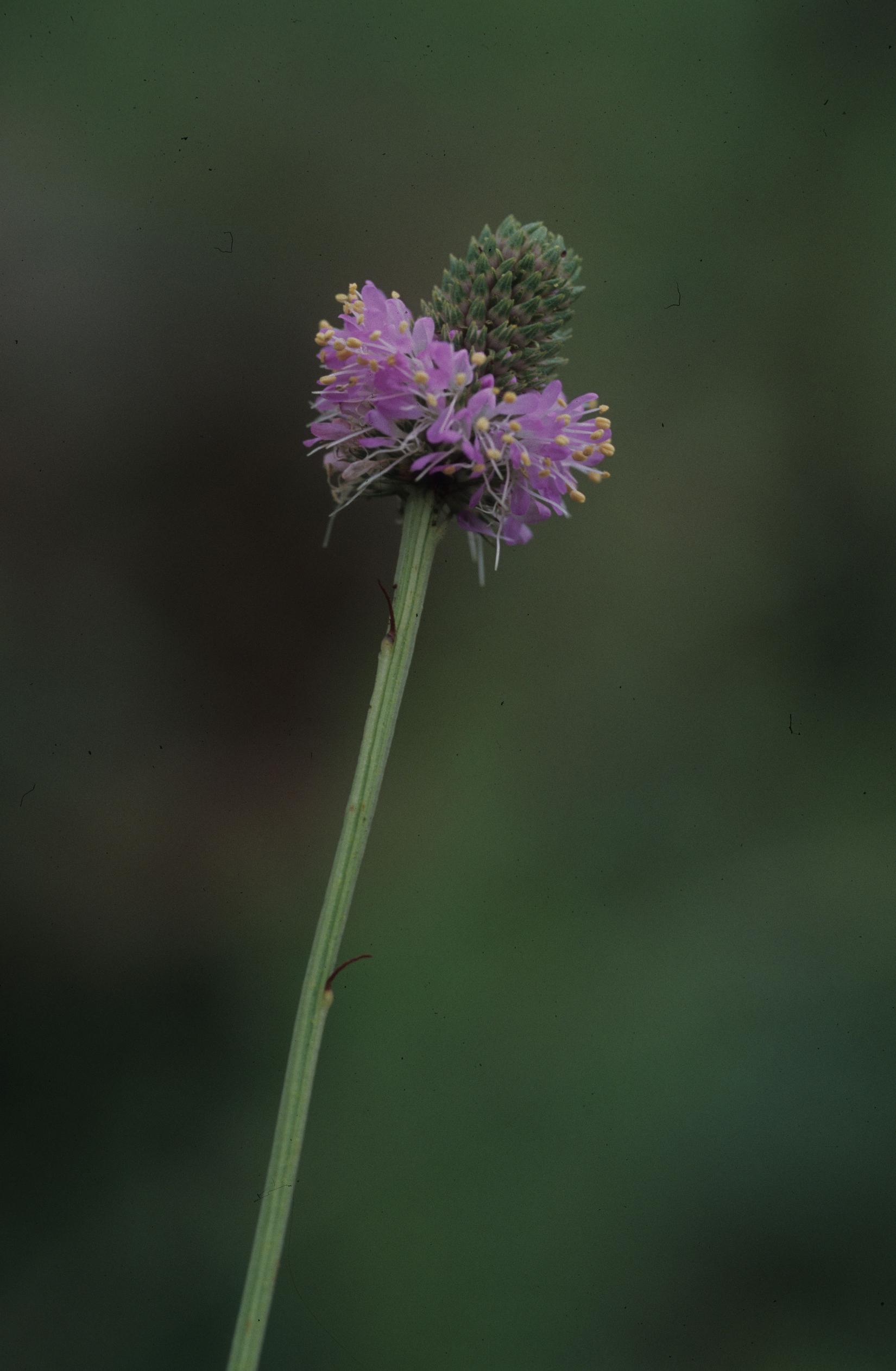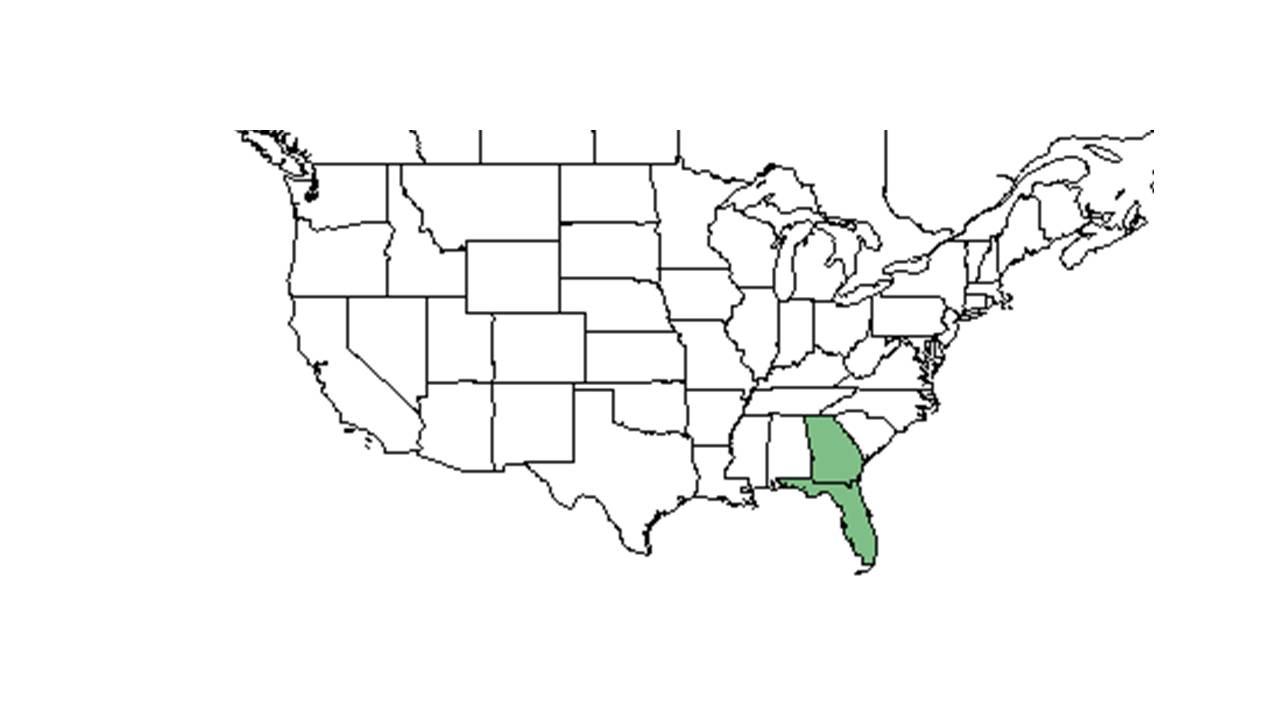Difference between revisions of "Dalea carnea"
(→Description) |
(→Ecology) |
||
| Line 26: | Line 26: | ||
==Ecology== | ==Ecology== | ||
===Habitat=== <!--Natural communities, human disturbed habitats, topography, hydrology, soils, light, fire regime requirements for removal of competition, etc.--> | ===Habitat=== <!--Natural communities, human disturbed habitats, topography, hydrology, soils, light, fire regime requirements for removal of competition, etc.--> | ||
| − | + | It is found in wet pine flatwoods, edges of cypress swamps, edges of pine palmetto habitats, Longleaf pine uplands, and in dry pine woods and savannas. It is also found in human disturbed areas such as open fields, embankments, areas that have been logged and clear cut. Requires semi-shaded areas. It is associated with areas that have drying loamy sand, loose sand, where limestone underlies the surface in flatwoods, and well-drained slopes of Longleaf pine forests (FSU Herbarium). | |
===Phenology=== <!--Timing off flowering, fruiting, seed dispersal, and environmental triggers. Cite PanFlora website if appropriate: http://www.gilnelson.com/PanFlora/ --> | ===Phenology=== <!--Timing off flowering, fruiting, seed dispersal, and environmental triggers. Cite PanFlora website if appropriate: http://www.gilnelson.com/PanFlora/ --> | ||
| − | + | It has been observed flowering from June to November (FSU Herbarium). | |
===Seed dispersal=== | ===Seed dispersal=== | ||
| Line 35: | Line 35: | ||
===Fire ecology=== <!--Fire tolerance, fire dependence, adaptive fire responses--> | ===Fire ecology=== <!--Fire tolerance, fire dependence, adaptive fire responses--> | ||
===Pollination=== | ===Pollination=== | ||
| − | + | bumble bees and honey bees has been observed on ''D. carnea'' (FSU Herbarium). | |
===Use by animals=== <!--Herbivory, granivory, insect hosting, etc.--> | ===Use by animals=== <!--Herbivory, granivory, insect hosting, etc.--> | ||
===Diseases and parasites=== | ===Diseases and parasites=== | ||
| + | |||
==Conservation and Management== | ==Conservation and Management== | ||
==Cultivation and restoration== | ==Cultivation and restoration== | ||
Revision as of 13:33, 13 July 2015
| Dalea carnea | |
|---|---|

| |
| Photo was taken by Gil Nelson | |
| Scientific classification | |
| Kingdom: | Plantae |
| Division: | Magnoliophyta - Flowering plants |
| Class: | Magnoliopsida – Dicotyledons |
| Order: | Fabales |
| Family: | Fabaceae ⁄ Leguminosae |
| Genus: | Dalea |
| Species: | D. carnea |
| Binomial name | |
| Dalea carnea (Michx.) Poir. | |

| |
| Natural range of Dalea carnea from USDA NRCS Plants Database. | |
Contents
Description
Common Name: Whitetassels
Plant with several elongate, radiating branches spreading through grasses, not erect (FSU Herbarium). Decumbent(FSU Herbarium). It has a turbinate lignotuber(FSU Herbarium).
Distribution
Ecology
Habitat
It is found in wet pine flatwoods, edges of cypress swamps, edges of pine palmetto habitats, Longleaf pine uplands, and in dry pine woods and savannas. It is also found in human disturbed areas such as open fields, embankments, areas that have been logged and clear cut. Requires semi-shaded areas. It is associated with areas that have drying loamy sand, loose sand, where limestone underlies the surface in flatwoods, and well-drained slopes of Longleaf pine forests (FSU Herbarium).
Phenology
It has been observed flowering from June to November (FSU Herbarium).
Seed dispersal
Seed bank and germination
Fire ecology
Pollination
bumble bees and honey bees has been observed on D. carnea (FSU Herbarium).
Use by animals
Diseases and parasites
Conservation and Management
Cultivation and restoration
Photo Gallery
References and notes
Florida State University Robert K. Godfrey Herbarium database. URL: http://herbarium.bio.fsu.edu. Last accessed: June 2014.
Collectors: Allen G. Shuey, R.K. Godfrey, Richard D. Houk, P. Genelle, G. Fleming, Sidney McDaniel, R. Kral, Loran C. Anderson, Steve L. Orzell, O. Lakela, Edwin L. Bridges, Paul L. Redfearn Jr., Duane Isely, Don K. Wemple, Duane Isely, Don K. Wemple, A. F. Clewell, Robert Blaisdell, Wakulla, Cecil R. Slaughter, R. Komarek, Bill Boothe, Marcia Boothe, D. S. Correll, Robert L. Lazor, and Mark A. Garland.
States and Counties: Florida: Brevard, Citrus, Clay, Collier, De Soto, Dixie, Hillsborough, Indian River, Lee, Pasco, Pinellas, Polk, Seminole, St. Johns, Taylor, Polk, Dixie, Leon, Gilchrist, Jefferson, Levy, Jackson, Calhoun, Wakulla, Wilson Baker, Liberty, Bay, Holmes, Santa Rosa, and Washington. Georgia: Charlton and Thomas. Alabama: Barbour. Mississippi: Jackson.